Are you passionate about creating a sustainable future and making a real difference in the world? If so, you're in the right place! This article provides a comprehensive letter template to help you craft the perfect application for a sustainable development job. So, let's dive in and explore how to showcase your skills and passion effectively!

Highlight relevant experience in sustainability projects.
The role of a sustainability project manager in various organizations has provided extensive experience in promoting environmentally friendly initiatives. Successfully led a solar energy implementation project in California, resulting in a 30% reduction in energy costs for a local non-profit organization. Managed community-based recycling initiatives in Colorado, increasing participation rates from 20% to 65% over a two-year period. Coordinated travel programs focused on carbon offsetting for over 200 employees at a major tech firm, leading to a significant decrease in overall carbon emissions reported in the company's annual sustainability report. Collaborated with stakeholders across public and private sectors, ensuring alignment with national sustainability goals and local regulatory requirements. Expert in using data analytics to measure project impacts, illustrating overall benefits to local ecosystems and communities. Passionate about furthering sustainable practices and enhancing community awareness through innovative programs and strategic partnerships.
Emphasize knowledge of sustainable development goals and practices.
An applicant for a sustainable development position should highlight their expertise regarding the United Nations Sustainable Development Goals (SDGs), which encompasses critical objectives like poverty alleviation, gender equality, and environmental conservation. Familiarity with sustainable practices, such as renewable energy initiatives and sustainable agriculture techniques, plays a pivotal role in advancing these goals. Knowledge of international frameworks, such as the Paris Agreement on climate change, and commitment to implementing strategies that promote social equity and economic growth through responsible resource management are vital components. Understanding the significance of community engagement in sustainable projects underscores an applicant's capacity to work effectively in diverse environments, driving collaboration among stakeholders, and ensuring long-term success in achieving the SDGs.
Showcase skills in environmental impact assessments and reporting.
Sustainable development roles increasingly require expertise in environmental impact assessments (EIAs) and reporting processes to ensure ecological integrity. Proficient engagement in EIAs involves analyzing potential environmental consequences of proposed projects, emphasizing factors like biodiversity, ecosystem services, and community health. Knowledge of regulations, such as the National Environmental Policy Act (NEPA) in the United States, guides comprehensive data collection and stakeholder involvement. Effective reporting includes synthesizing complex information into clear, actionable insights for policymakers and stakeholders. Previous experience in leading EIA teams, utilizing tools like Geographic Information Systems (GIS) for spatial analysis, enhances the accuracy and effectiveness of environmental assessments.
Demonstrate commitment to corporate social responsibility initiatives.
Corporate social responsibility (CSR) initiatives play a vital role in sustainable development practices within organizations, driving positive impact on communities and the environment. Companies such as Unilever and Patagonia are renowned for their strong commitment to sustainability through initiatives aimed at reducing carbon footprints, promoting ethical sourcing, and enhancing community welfare. Effective CSR programs not only address social and environmental challenges but also foster stakeholder engagement and enhance brand reputation. In 2022, research indicated that 70% of consumers prefer to support brands that are socially responsible, highlighting the critical importance of sustainability in business today. Engaging in comprehensive CSR strategies can lead to long-term benefits, such as increased customer loyalty and improved employee morale, positioning organizations as leaders in the movement towards a more sustainable future.
Detail cross-functional collaboration in implementing sustainability solutions.
Cross-functional collaboration plays a pivotal role in implementing sustainability solutions within organizations. By leveraging diverse expertise from various departments--such as operations, marketing, finance, and human resources--teams can create integrated strategies that promote environmental stewardship and social responsibility. For example, in a project aimed at reducing carbon emissions, the operations team can assess resource usage while the finance department can analyze budget implications. Marketing can effectively communicate these initiatives to stakeholders, enhancing brand reputation. Additionally, human resources can facilitate training programs that empower employees to adopt sustainable practices. Tools such as project management software help streamline communication, ensuring each function aligns with overarching sustainability goals, ultimately fostering a culture of innovation and responsibility across the organization.
Letter Template For Sustainable Development Job Application Samples
Letter template of interest for a sustainable development job opportunity.
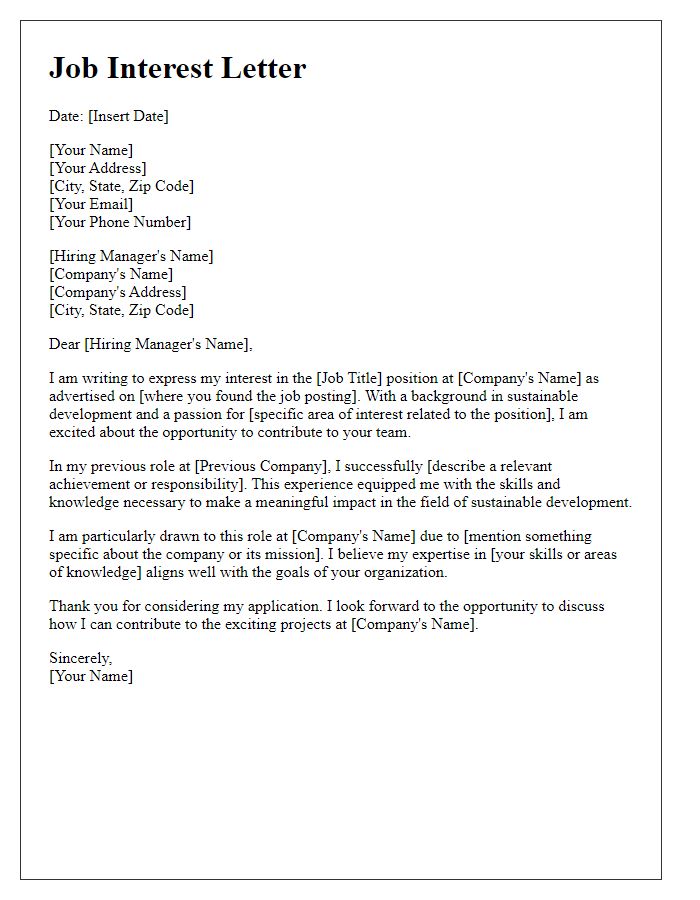
Letter template of introduction for a career in sustainable development.
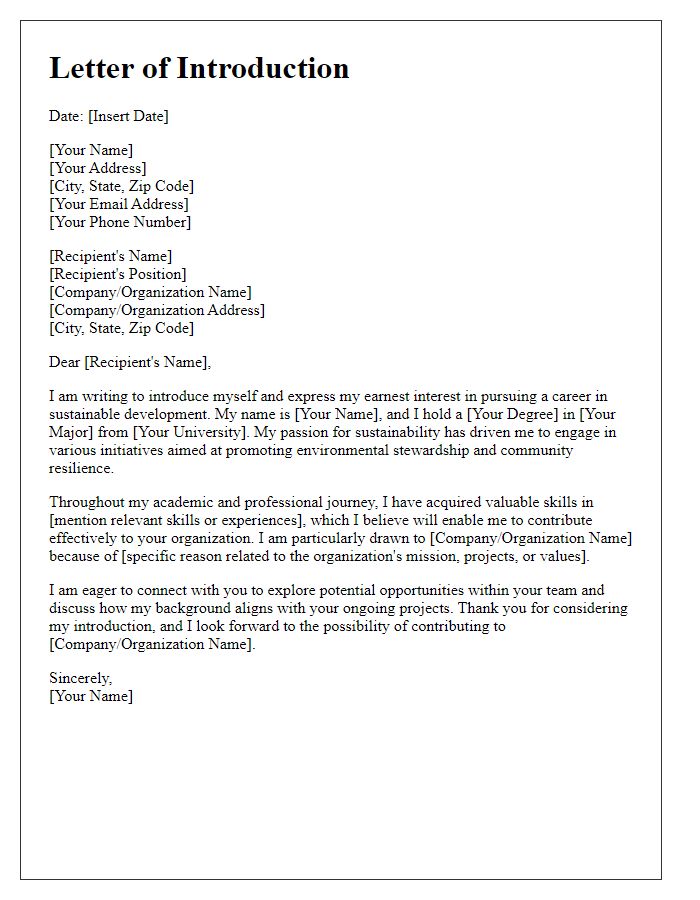
Letter template of expression of interest in sustainable development roles.
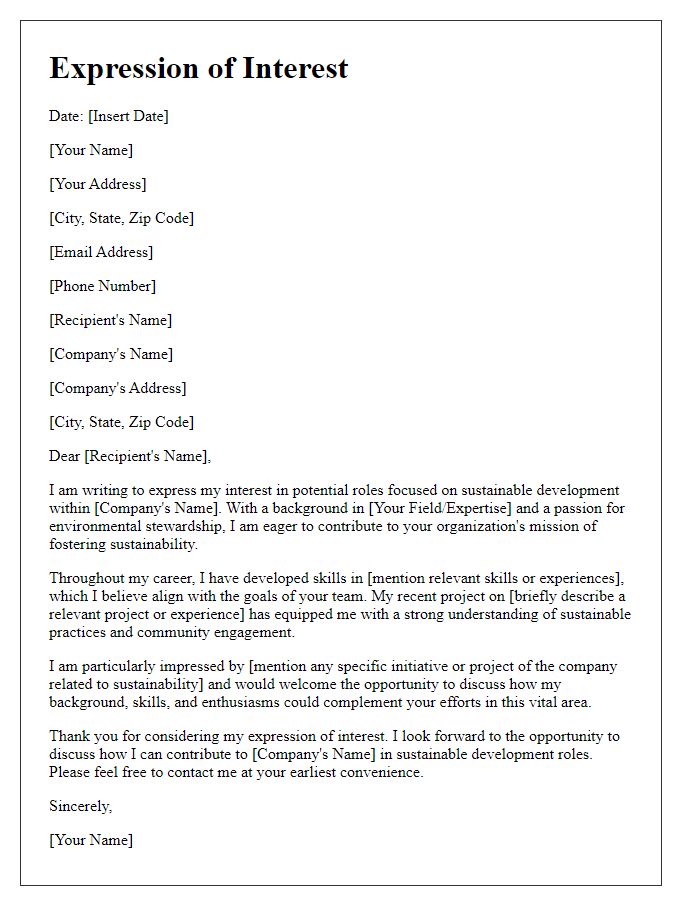
Letter template of request for consideration in a sustainable development project.
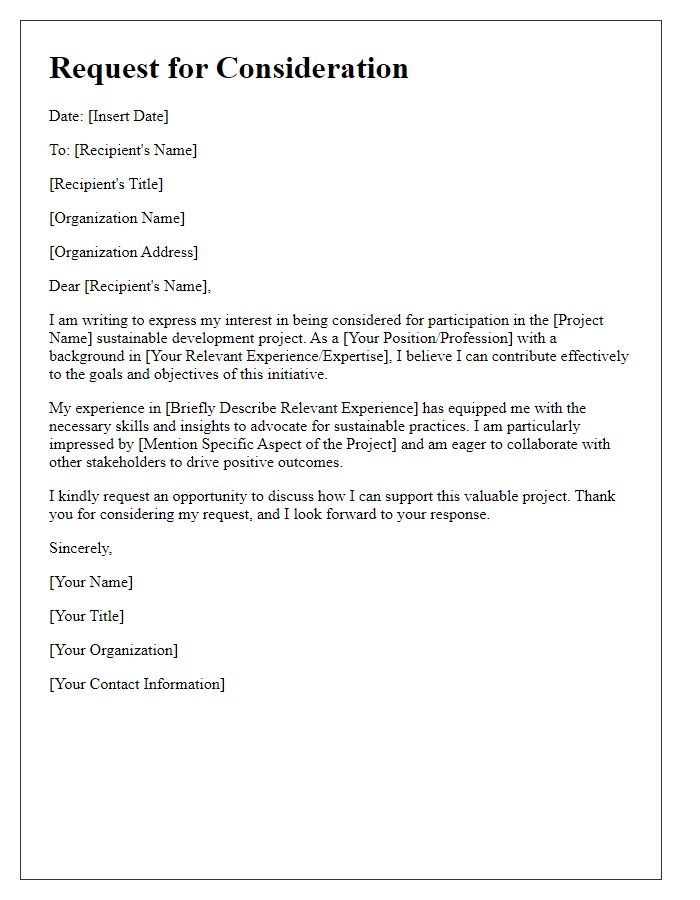

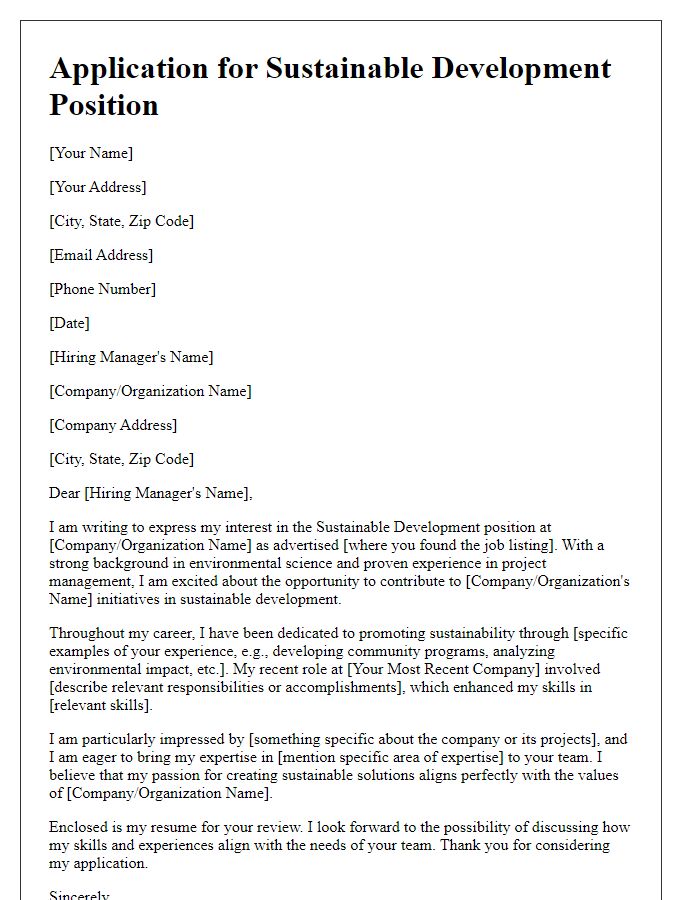
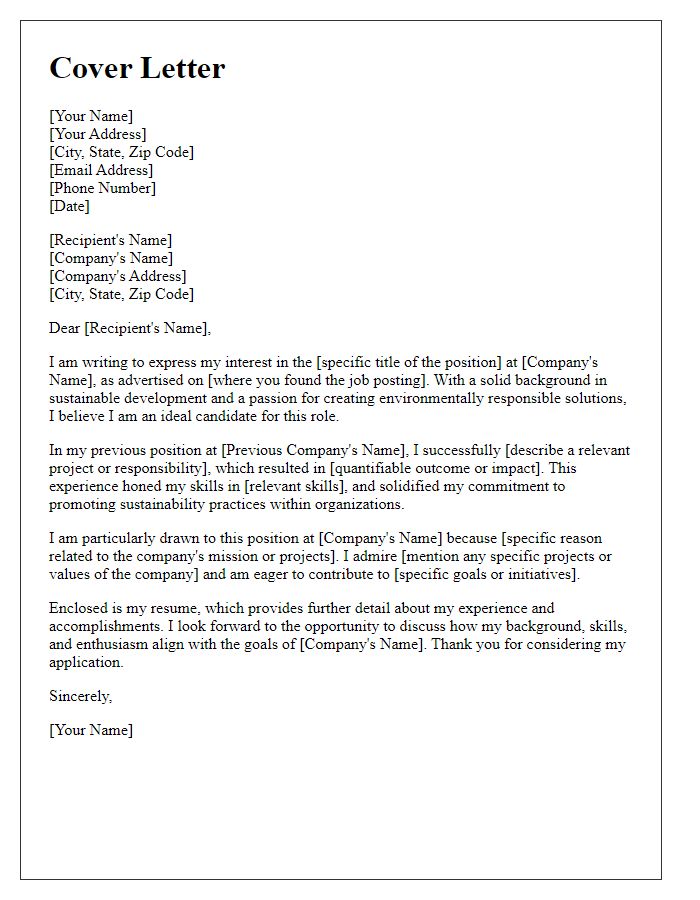
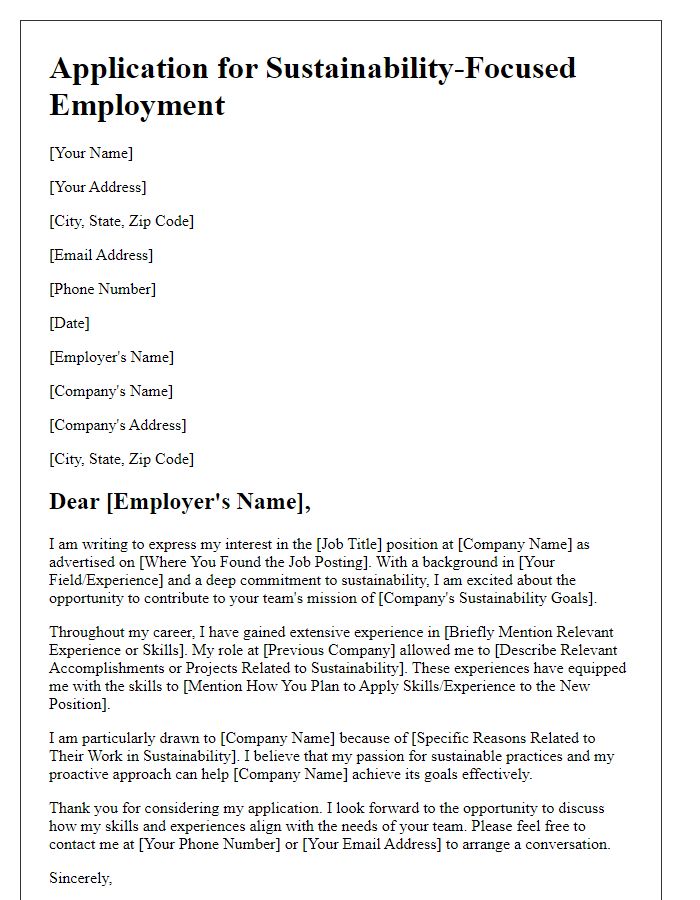
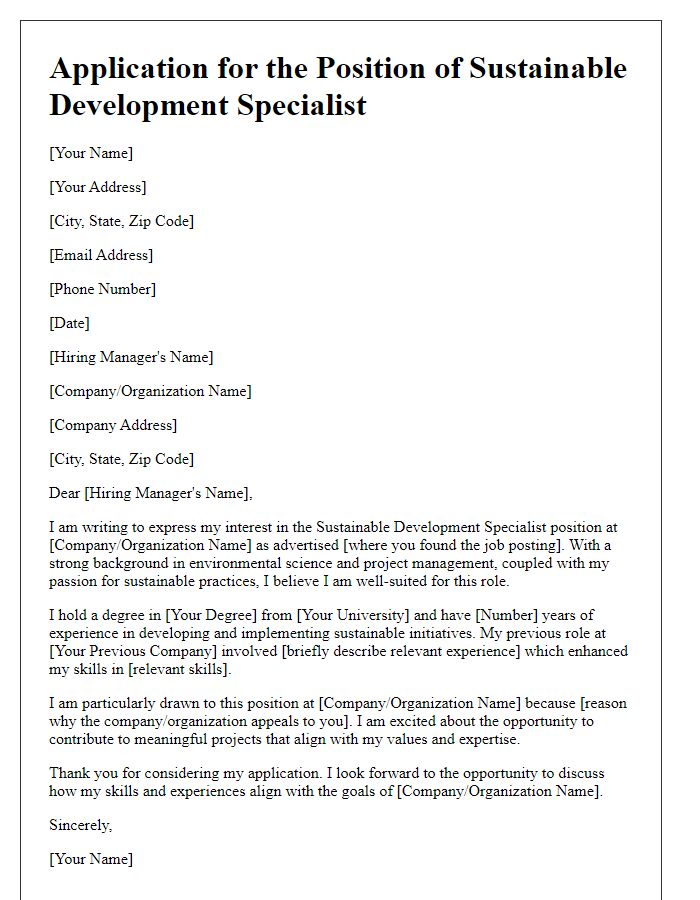
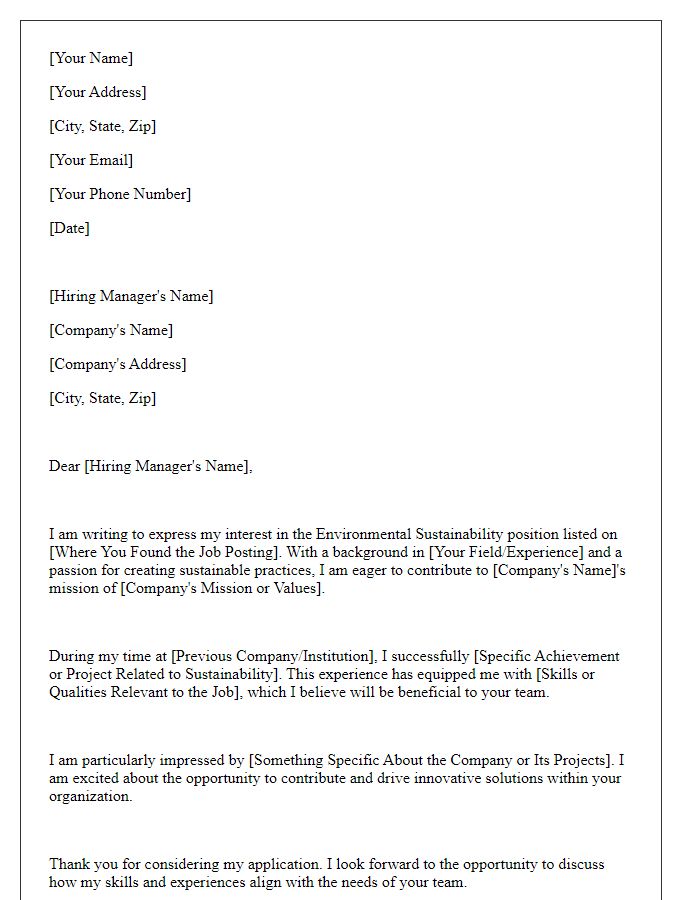
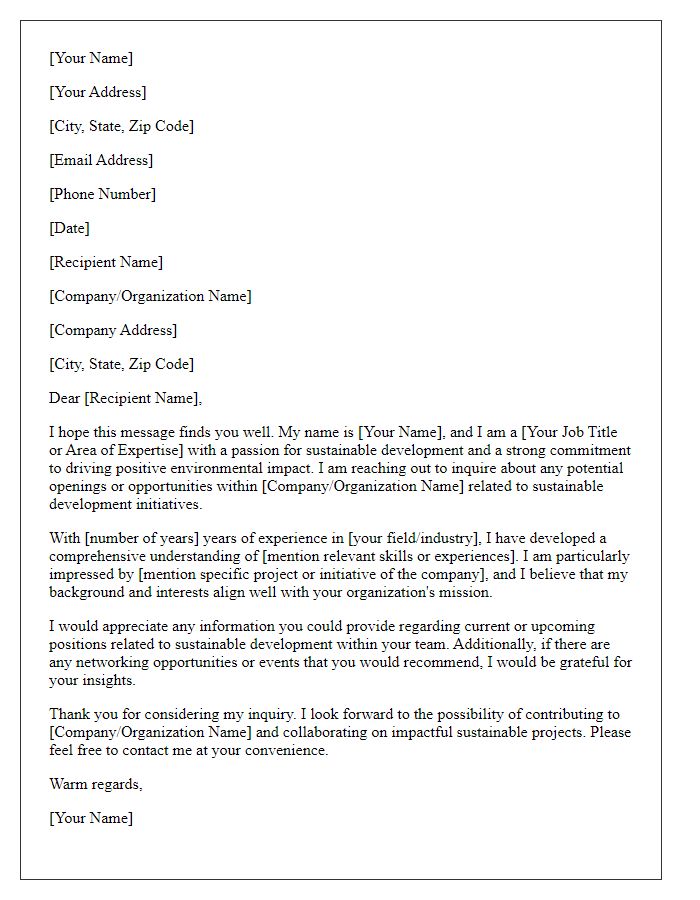


Comments